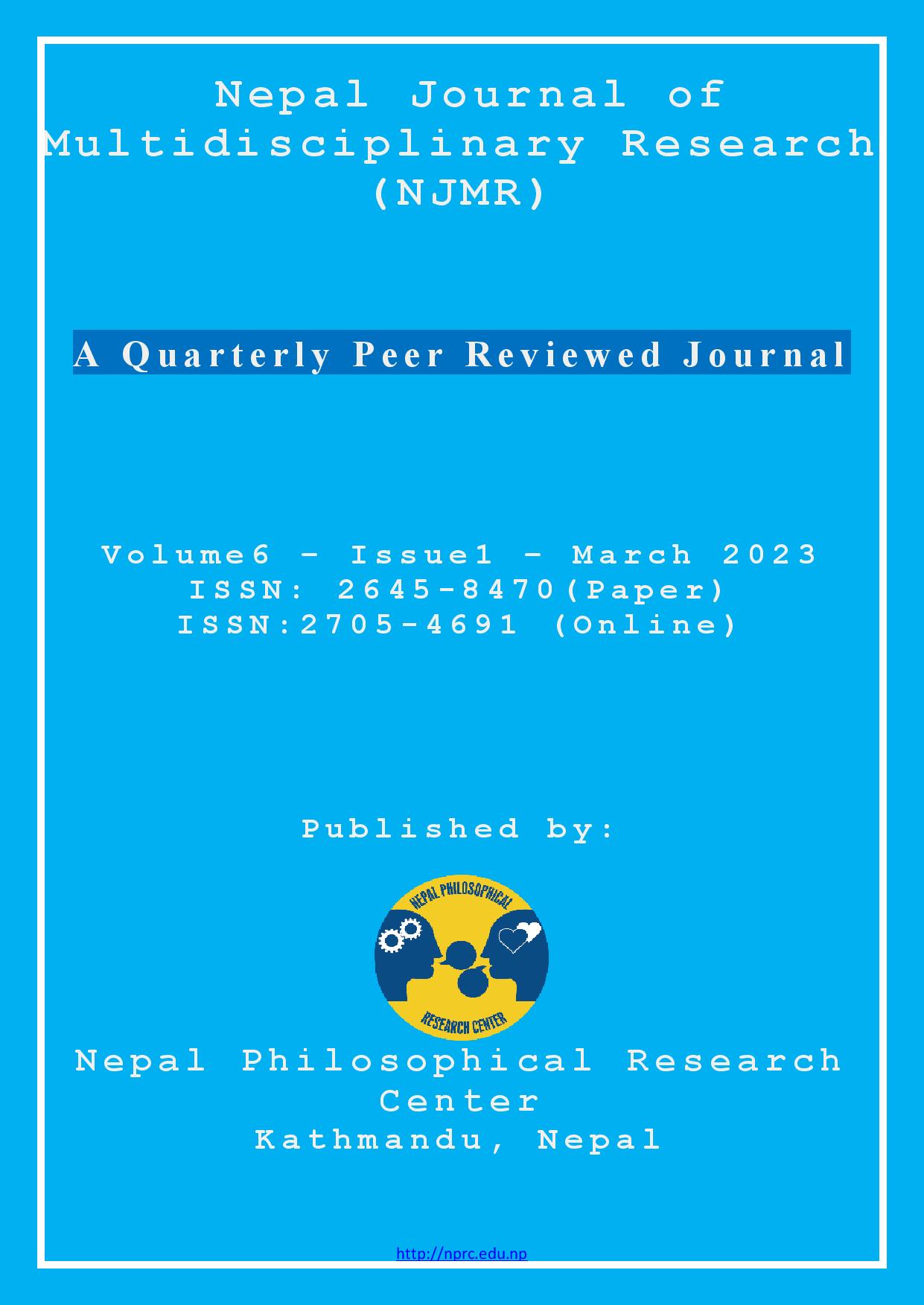Techniques Used by College Level English Teachers to Assess Interactive Speaking: A Phenomenological Study
DOI:
https://doi.org/10.3126/njmr.v6i1.53783Keywords:
assessment, college level, , interactive speaking, techniqueAbstract
Interactive speaking is a crucial component of speaking skill. It is essential for effective and successful communication. Assessment of students’ interactive speaking helps teachers to enhance students’ overall speaking proficiency in a second or foreign language. Several techniques can be used to evaluate interactive speaking and the application of techniques may vary according to the forms of speaking. The present article focuses on exploring the techniques used by college level English language teachers to assess the interactive speaking of the students who study major English at the bachelor's level. The study was conducted using qualitative approach and descriptive phenomenology design. The sample population included 13 English language teachers who taught English at affiliated colleges in the Banke district. I used convenience sampling to select the colleges and simple random sampling to select the sample population. The only technique used for collecting data was structured interview. Each of the interviews was recorded using an audio recorder and transcribed verbatim. The data was analyzed using thematic approach to qualitative data analysis. The study revealed that oral question and answer, formal and informal debates, interviews, role plays, and discussion are the most commonly used techniques to assess interactive speaking skill at the college level. The study concluded that the techniques used in assessing interactive speaking may slightly vary depending on the level of the students but the teachers can use these techniques to the students of all levels.
Downloads
Downloads
Published
How to Cite
Issue
Section
License
Copyright (c) 2023 Hari Prasad Tiwari

This work is licensed under a Creative Commons Attribution-NonCommercial 4.0 International License.
This license enables reusers to distribute, remix, adapt, and build upon the material in any medium or format for noncommercial purposes only, and only so long as attribution is given to the creator.




